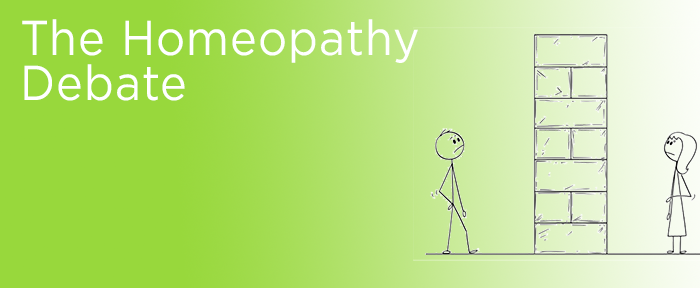484 results
古巴2007年大規模順勢療法免疫治療(HP)報告
2010 年 10 月 22 日 鉤端螺旋體病 (Leptospirosis) 是一種潛在致命的傳染病,由接觸受污染水源引起。在2007年古巴的一次爆發中,向230萬高危人群提供了順勢療法藥物,其餘880萬人未得到治療。在Brach等人的這項研究中,這是有史以來最大型的一項順勢療法藥物評估研究,順勢療法治療「與疾病發病率的大幅降低密切相關,從而完全控制了那一次的流行病爆發」 順勢療法預防(HP)介入的顯著效果 經過三星期的順勢療法預防(HP)介入後,確診病例的數量顯著減少,從介入前的每星期(每10萬人)38宗案例減少到介入後的每星期(每10萬人)4-6宗案例,遠低於預測的感染率。這一下降與70%的目標人群接受HP治療的時間一致。 治療區的感染總數從2007年的401宗案例下降到2008年的64宗案例,發病率下降了84%,而非治療區的感染人數從2007年的309宗案例上升到2008年的376宗案例,增長了21%。 對230萬個高危人群中的92% 進行了順勢療法預防,除此之外,15000個常規疫苗接種給0.6% 的高危人群。因為鉤端螺旋體病的發病率通常在高降雨量期間最高,所以按降雨量對感染率進行比較。雖然2008年降雨量普遍減少,但未經治療地區的感染率有所上升,而治療地區的感染率則顯著下降。 順勢療法免疫治療(HP)值得進一步作研究 儘管這些結果非常有令人鼓勵,但必須強調的是,這項研究不是一項臨床試驗–沒有安慰劑對照,存在許多混雜因素,例如在0.6% 的治療區域同時使用常規疫苗。同樣難以評估的是,大規模介入本身會提高人民對非醫療預防措施(食水處理等)方面的意識。沒有提到是否向民眾提供這種資訊。 這就是說,作者在如此大規模的介入(與未處理地區的比較、發病率的數學模型、與降雨量的比較)的背景下,盡可能多地進行控制。本報告建立了一個強而有力的案例,認為順勢療法免疫治療是一種可行的工具,用於流行病控制,值得進一步研究。從介入的有效性、行動速度和總體成本效益來看,這一研究途徑在緊急大規模免疫專案中值得重視。 Full text Bracho G et al. Large-scale application of highly-diluted bacteria for Leptospirosis epidemic control. Homeopathy, 2010; 99: 156-166
MoreImprovements seen in independent reproducibility of homeopathic basic research results
Synopsis by Suse Moebius of ‘Repetitions of fundamental research models for homeopathically prepared dilutions beyond 10-23: A bibliometric study.’ Endler PC, Thieves K, Reich C, Matthiessen P, Bonamin L, Scherr C, Baumgartner S. Homeopathy, 2010; 99: 25-36 Synopsis | Abstract
MoreGovernment responds to Select Committee’s report on Homeopathy
July 26th 2010 In November 2009 the Science and Technology Select Committee of the UK Parliament carried out an “evidence check” into homeopathy. A general media announcement in October 2009 invited written sumbissions and requests could be made to give oral evidence during two hearings. The committee’s report, ‘Evidence Check 2: Homeopathy’ was released in February 2010 for […]
MoreHomeopathy research at the International Congress of Complementary Medicine Research
June 21st 2010 The 5th International Congress on Complementary Research (ICCMR) recently held in Tromsø, Norway attracted over 400 CAM researchers. There were over a dozen presentations covering a wide range of different types of homeopathy research – basic, clinical and methodological research into the effects of both homeopathic remedies and homeopathic practitioners. Sarah Brien […]
MoreImprovement seen in reproducibility of homeopathic basic science results
April 28th 2010 The repeatability of experimental designs used in biochemical and biological studies of serially-succussed ultrahigh dilutions is an ongoing challenge. In a recent article, Endler et al. identified 107 studies involving 24 different reserach models(1). 30 initial studies had been replicated internally by the same research team, by co-ordinated teams at different locations (multicentre […]
MoreLong term health improvements of homeopathy users
March 20th 2010 An 8-year longitudinal cohort study of over 3500 adults and children found that “patients who seek homeopathic treatment are likely to improve considerably”(1). The research was conducted to narrow the knowledge gap between homeopathy’s continuing popularity and lack of data about effectiveness and outcomes over time. A team at the Charite University […]
MoreHomeopathic remedies produce specific symptoms different from placebo
December 7th 2009 Homeopathic Pathogenetic Trials Produce Specific Symptoms Different from Placebo Statistically significant differences between the effects of homeopathic medicines and placebo were found in a recent study by Möllinger et al.1 Double-blind, randomised trial (RCT) methodology was applied to a homeopathic pathogenetic trial (commonly referred to as a proving), which showed that “homeopathic remedies […]
MoreA Trial of Homeopathy for Moderate to Severe Depression
Synopsis by Suse Moebius of ‘Homeopathic Individualized Q-Potencies versus Fluoxetine for Moderate to Severe Depression: Double-blind, Randomized Non-inferiority trial’. Adler UC, Paiva AT, Cesar AT, Adler MS, Molina A, Padula AE, Calil HM Evidence-Based Complementary and Alternative Medicine, 2011:520182 Synopsis | Full text
MoreA trial of homeopathy for moderate to severe depression
October 7th 2009 The World Health Organisation estimates that 4.5% of the population worldwide experience depression at some point in their lifetime (WHO, 2007). Depression was found to be the most frequently treated condition in a study of NHS homeopathic treatments (Mathie and Robinson, 2006). Depression treatment in homeopathy has been subject of two previous […]
MoreHomeopathic Remedies Produce Specific Symptoms Different from Placebo
Synopsis by Suse Moebius of ‘Homeopathic Pathogenetic Trials Produce Specific Symptoms Different from Placebo’. Möllinger H, Schneider R, Walach H. Forsch Komplementmed 2009;16:105-110 Synopsis | Abstract
More












